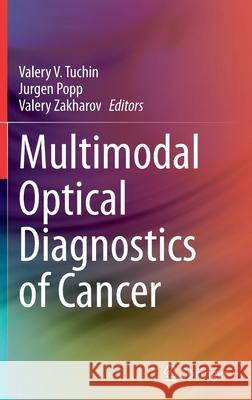Multimodal Optical Diagnostics of Cancer » książka
topmenu
Multimodal Optical Diagnostics of Cancer
ISBN-13: 9783030445935 / Angielski / Twarda / 2020 / 597 str.
Multimodal Optical Diagnostics of Cancer
ISBN-13: 9783030445935 / Angielski / Twarda / 2020 / 597 str.
cena 603,81
(netto: 575,06 VAT: 5%)
Najniższa cena z 30 dni: 578,30
(netto: 575,06 VAT: 5%)
Najniższa cena z 30 dni: 578,30
Termin realizacji zamówienia:
ok. 22 dni roboczych.
ok. 22 dni roboczych.
Darmowa dostawa!
Kategorie BISAC:
Wydawca:
Springer
Język:
Angielski
ISBN-13:
9783030445935
Rok wydania:
2020
Wydanie:
2020
Ilość stron:
597
Waga:
1.03 kg
Wymiary:
23.39 x 15.6 x 3.33
Oprawa:
Twarda
Wolumenów:
01
Dodatkowe informacje:
Wydanie ilustrowane











